Tesla faces a new lawsuit accusing the company of intentionally inflating the mileage shown on its vehicles’ odometers in order to avoid warranty claims. The new class action suit filed in California could expose the automaker to potentially massive fines, penalties and other costs under both state and federal law if it were found to be rigging odometer readings. Separately, CEO Elon Musk signaled that Tesla will have to replace as many as 4 million onboard computers not capable of operating the latest version of the company’s Full Self-Driving system.
A new lawsuit filed in California Superior Court accuses Tesla of using “predictive algorithms” to illegally inflated the mileage shown on its vehicles’ odometers in order to avoid having to cover some repair costs by claiming the vehicles have been driven out of warranty.
Filed as a class action, lead plaintiff Nyree Hinton claimed his odometer showed him driving his 2020 Tesla Model Y more than twice as far during a six-month period as he had with three prior vehicles, though the mileage he clocked after the EV went out of warranty suddenly dropped sharply.
The lawsuit comes at a time when Tesla is facing a variety of other problems, including plunging sales and earnings. Investors are waiting to see what happens when Tesla reports its first quarter earnings late on Tuesday. Adding to Tesla’s woes, the company has acknowledged it will need to replace the computers in as many as 4 million EVs because they can’t handle the latest version of the Full Self-Driving system.
“Predictive algorithms”
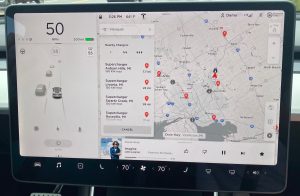
Unlike most modern vehicles, Tesla displays everything, even odometer readings, on its central display.
A Los Angeles-based data professional, Nyree purchased a 2020 Tesla Model Y in December 2022. At the time, it had 36,772 miles showing on its digital odometer. That meant it was covered by Tesla’s Basic Vehicle Limited Warranty covering bumper-to-bumper repairs. The warranty was good for 50,000 miles or four years, whichever came first. But, the legal document claims that within six months, Nyree’s odometer had added another 13,228 miles, driving out of warranty – and thus having to make repairs out of pocket.
He claims to have used the vehicle primarily to commute, with his three prior vehicles clocking an average 6,086 miles in a six-month period. The suit also noted that once his Model Y had topped 50,000 miles it suddenly started averaging just 1,415 miles a month.
According to Nyree’s lawsuit, Tesla secretly “”employs an odometer system that utilizes predictive algorithms, energy consumption metrics, and driver behavior multipliers that manipulate and misrepresent the actual mileage traveled by Tesla Vehicles.”
As a result, it alleges, his Model Y “consistently exhibited accelerated mileage accumulations of varying percentages ranging from 15 percent to 117 percent higher than plaintiff’s other vehicles and his driving history.”
What happens now
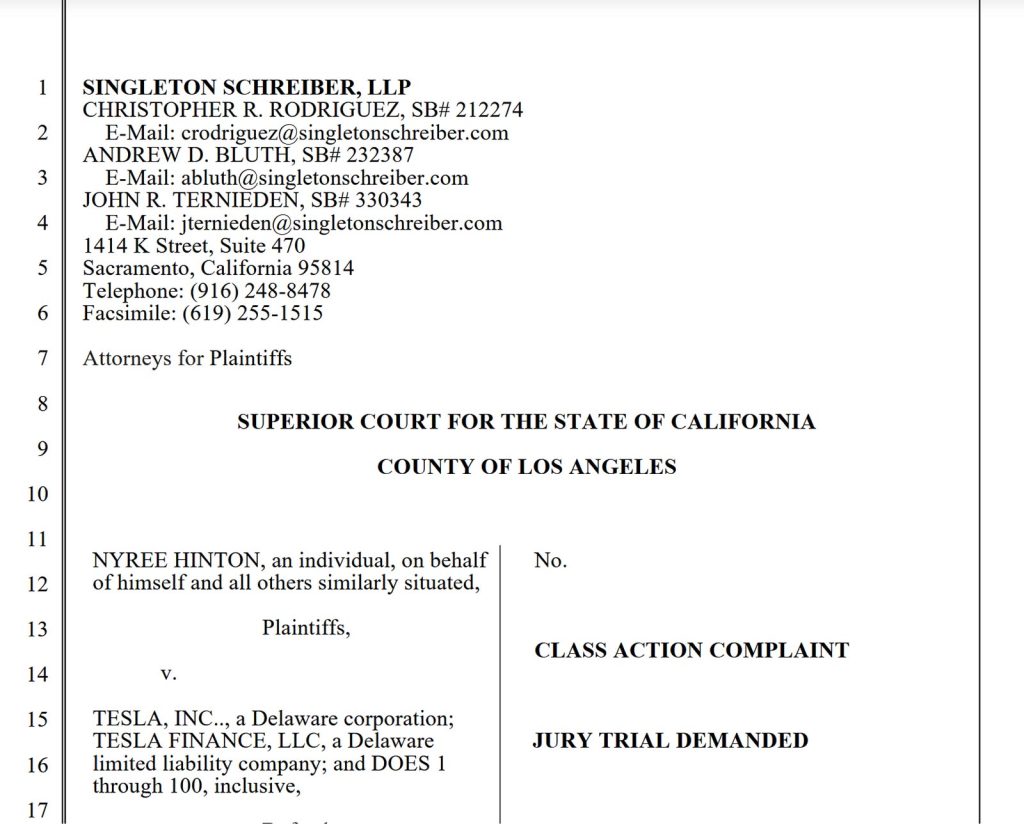 The lawsuit claims that other Tesla owners have faced similar problems with odometers allegedly racking up miles faster that they expected.
The lawsuit claims that other Tesla owners have faced similar problems with odometers allegedly racking up miles faster that they expected.
It’s the latest class action the now Texas-based automaker has faced. But, with a prior claims alleging Tesla inflated the range of its vehicles, a U.S. district judge rejected the suit, ruling that owners had to individually enter into arbitration with Tesla.
The odometer case could be another matter. Not only has it been filed in state court but it also raises the prospect that Tesla might have violated both state and federal law. Under 49 U.S. Code § 32703, “A person may not (1) advertise for sale, sell, use, install, or have installed a device that makes an odometer of a motor vehicle register a mileage different from the mileage the vehicle was driven, as registered by the odometer within the designed tolerance of the manufacturer of the odometer.”
It also bans any action that would disconnect, reset or alter odometer settings. Anyone doing so under federal law, whether to simply operate the vehicle or to defraud a buyer, may face a penalty of up to $10,000 per violation – though there is a $1 million cap. If found guilty, Tesla could face various state penalties, as well.
More Tesla News
- Sales Plunging, Protests Rising, Can Musk Turn Things Around?
- Tesla Share of California Market Drops Below 50%
- Could Tesla Co-Founder Straubel Replace Elon Musk as CEO?
Mounting problems

Plenty of headaches for Elon Musk: the odometer case comes as Tesla’s sales and earnings are tumbling.
As if the odometer lawsuit weren’t enough of a potential problem, Tesla faces a number of other problems. Its global sales have tumbled in recent months as resistance mounts to CEO Musk’s political swing to the right and his role in the Trump administration.
The problems keep mounting. The Cybertruck is generating barely 20% of the company’s projected sales, according to various analysts. And Musk has acknowledged the automaker will have to replace computers in as many as 4 million of its EVs because they can’t handle the software used for the Full Self-Driving system. That could run up expenses pushing over $1 billion.
In turn, the automaker’s stock price fell on Monday to about half of the $488.54 peak set last December.
Investors are waiting to see what happens when Tesla reports its first quarter earnings late on Tuesday. Revenue estimates have been cut an average 18% over the past 30 days, according to a consensus of analysts gathered by Zacks.
And Barclay’s analyst Dan Levy reduced his own stock price target last week to $275, down from a prior $325 a share.

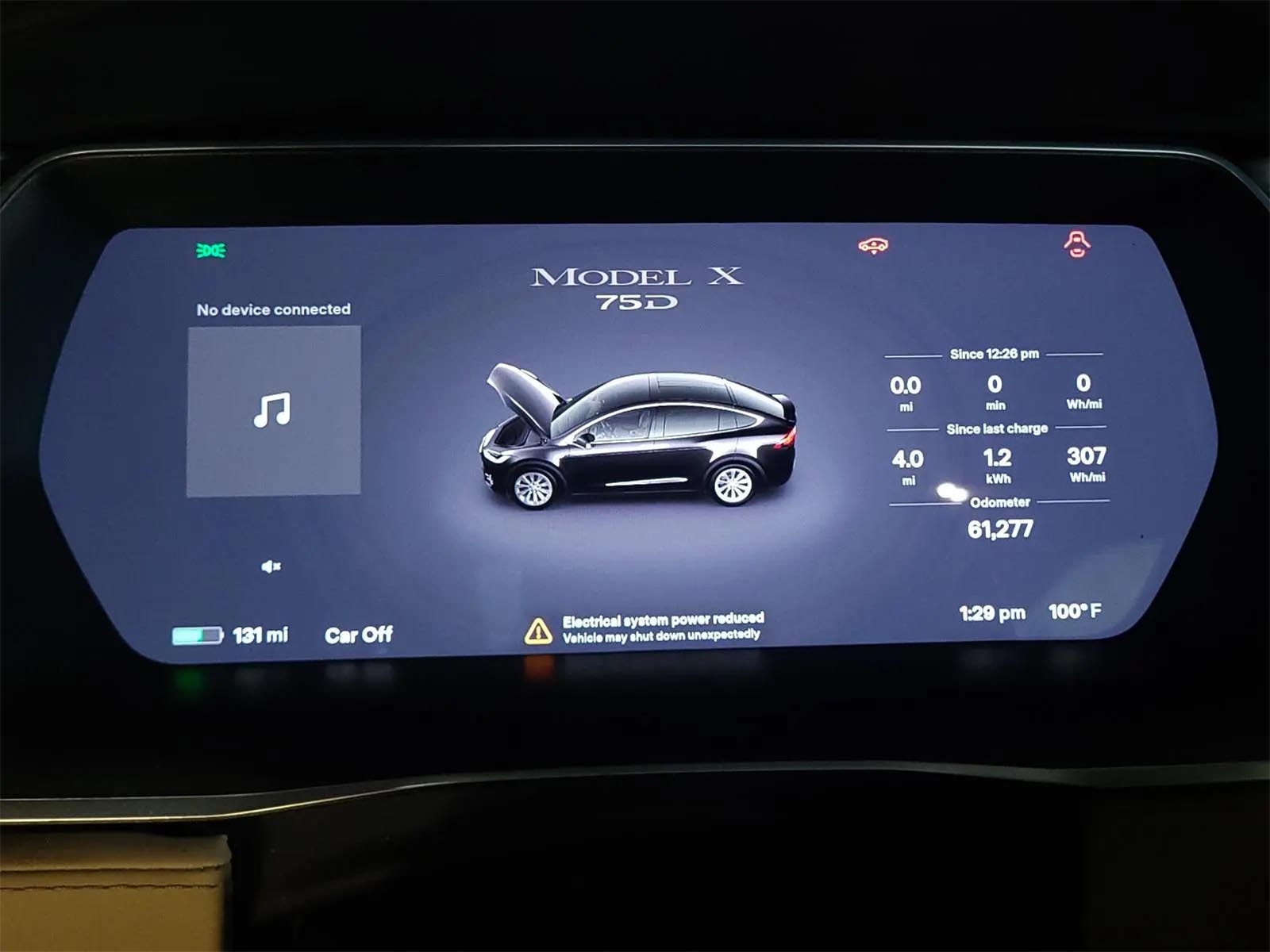
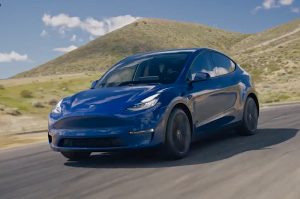

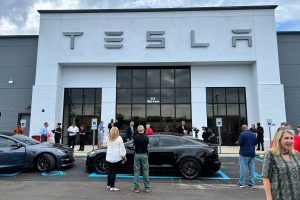


0 Comments